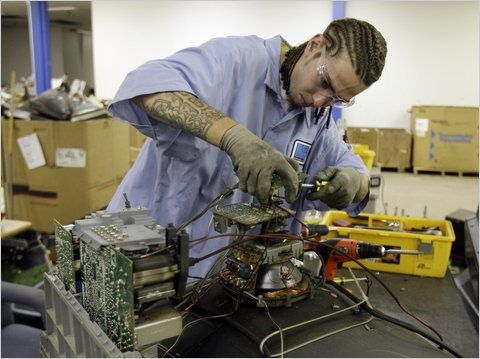
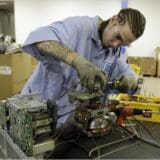
(Note: This post first appeared September 5 on Huffington Post and is republished with permission.)
You wouldn’t think that green jobs and gangs in America have much in common. But that’s before you realize that one has the power to positively change the other.
As the political rhetoric heated up last week in Tampa, many listened to hear how Mitt Romney will address the economic concerns felt by many Americans. For the past year, clashes between the one percent and those left behind have shed a new light on wealth disparity in our country. At a time when we’re expected to hit a record 66 million people living at or below the federal poverty line, our political leaders must support bold, innovative solutions that address the varied sources of poverty in our country.
The notion of job creation as a solution to [poverty] is nothing new.


There is little disagreement that consumer spending is a critical driver of American economic growth. The recession that began in 2007, while precipitated by the meltdown in the financial sector, is at root a crisis of aggregate demand. The halting recovery has been punctuated by disappointing monthly job reports and—just as important—by gloomy predictions from the Conference Board’s monthly survey of consumer confidence. Even business surveys admit (here and here) that anemic consumer demand (not “job-killing regulations”) is holding back new job creation and economic recovery.
Yet, despite worries about sagging consumer confidence and shrinking paychecks, business leaders seem unconcerned about the declining standard of living of middle-class America, or about the growing number of American families slipping into poverty. Over the last generation, wages for middle-class workers haven’t budged, while compensation for corporate executives and owners is reaching stratospheric levels.
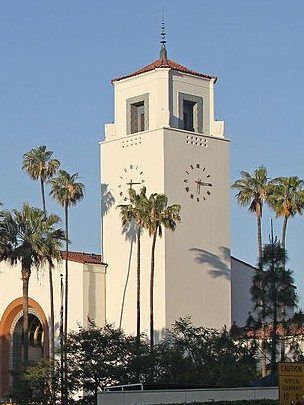

On August 29, 2012, one of the most important job creation and environmental bills in recent memory was adopted by the legislature and sent to the governor. Senate Bill 1156 was developed and introduced by Senate President pro tem Darrell Steinberg and supported by a strong majority in both houses. Steinberg built quiet momentum behind the bill starting last February, in partnership with a broad-based coalition of community, environmental, labor, smart-growth and good-government activists, with support from the counties, infill developers, non-profit housing developers and business.
Indeed, despite the fact that the new legislation builds on the mostly eradicated foundation of the old redevelopment scheme (see background here), the bill attracted surprisingly little opposition. The Howard Jarvis Taxpayers Association and the anti-union Alliance of Building Contractors (ABC) were its only formal opponents.
While SB 1156 is a comprehensive, “big picture” bill, it would also do a lot to help ordinary Californians.
» Read more about: Sustainable Communities Bills Sent to Governor Brown »


When I was a teenager in the 1950s, gasoline was cheap but cash was hard to come by. It was common practice to carry a siphon hose in one’s car because friends would frequently run out of gas. With a hose you could get just enough gas from a friend’s car to reach a gas station without having to get a can and make two trips. The hose was also useful for getting gas from the parents’ vehicles.
A siphoning hose uses atmospheric pressure and gravity to cause fluid to flow, once started, without further efforts. When adequate pressure is reached, the flow continues unabated as long as there is a sufficient source of liquid. This makes a great analogy for our economy because the notion of using an economic stimulus works exactly like the siphon hose. Get it going with sufficient force, and it will continue on its own as long as there is a demand.
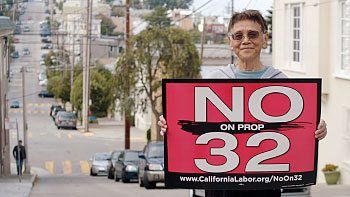
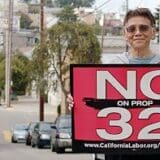
Hello, I’m Helen Gan, a member of IBEW Local 1245.
I want to persuade you to vote NO on Proposition 32. Prop 32 is a measure that will prohibit unions from contributing to political campaigns. It is part of an attempt, going on all across the country, for businesses to roll back the benefits unionization has given to workers.
I am 76 years old, and have worked for 57 years, 52 of them at PG&E. I am part of the generation who, because of the union, was able to live a good life, buy a house, travel, and have a secure old age.
I’m afraid most people have little knowledge of history, and short memories, not knowing how unions lobbied long and hard for us to get the benefits we have today.
In 1912, my mother was seven years old when she went to work in a cannery,
» Read more about: Why I'm Speaking Out Against Proposition 32 »
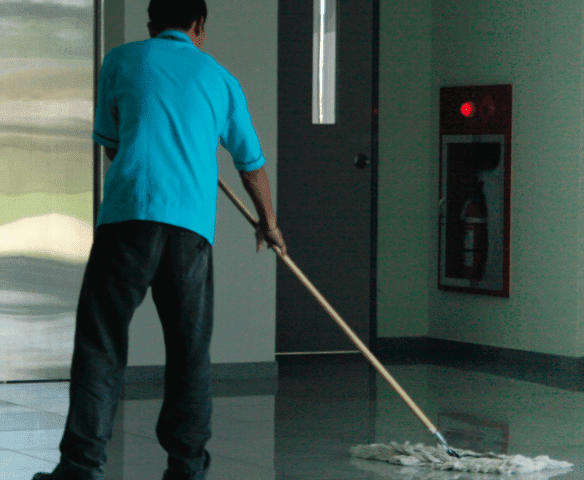
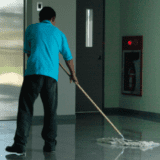
The nature of employment is changing. Employees are increasingly seen as liabilities rather than assets, and so workers are kept at arm’s length from the companies they ultimately serve. Middle-class long-term jobs are shifting to precarious, low-wage work. These contingent relationships include temporary and subcontracted workers, whose ranks have been growing over the past two decades.
In California, almost one-quarter of a million people worked in the temporary help services industry in 2010; another 37,000 people worked for employee leasing firms totaling 282,000 workers in these two industries. This accounted for approximately 2.0 percent of all non-farm employment in California in 2010, approximately the same ratio as for the U.S. as whole. Employment services workers span a wide range of occupations, from professional white collar occupations like nursing, accounting, and computer programming, to blue collar work in transportation and material moving, housekeeping and landscaping,
» Read more about: Report: Temporary Employees, Permanent Poverty »


According to the National Oceanic and Atmospheric Administration, 2012 has been the hottest year on record — ever. Millions of Americans suffered through the sweltering heat this summer, many in triple-digit temperatures in the Northeast and Southwest, and in California’s Central Valley.
California farm workers are literally dying from the heat. And their deaths are entirely preventable. Four hundred thousand California farm workers toil in extreme heat, producing 90 percent of the labor for the multi-billion-dollar agriculture industry that helps feed the nation our tomatoes, strawberries, grapes, lettuce and much more. They often lack water and access to shade throughout the long day in the fields.
Since 2005, at least 16 farm workers have died due to heat illness.
In 2008, for example, there was Maria Isabel Jimenez, a 17-year-old girl who was pruning a vineyard for Merced Farm Labor, near Stockton. She worked in the fields for nine hours straight without any water and with no shade.
» Read more about: Fields of Fire: Bill Provides Water, Shade to Farm Workers »
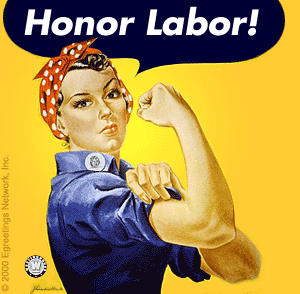
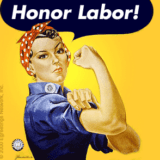
When I started Unionosity, my goal was to provoke discussion about important workplace and economic issues. Work is such a significant part of our lives – many of us spend the majority of our waking hours at it. Yet we don’t talk enough about what it means and how we can do it better — specifically, what can be accomplished if we work together.
Unfortunately, the “working together” part can sometimes go awry before it has the chance to begin. I’ve learned to be mindful of some of the predicaments that the working poor have long lived with. One of these I learned the hard way during an affordable housing campaign I took part in nearly 20 years ago in South Central Los Angeles. The program we were organizing around — ironically, a Jack Kemp HUD program — would transfer ownership of publicly subsidized housing to tenant groups made up of Section 8 voucher recipients,
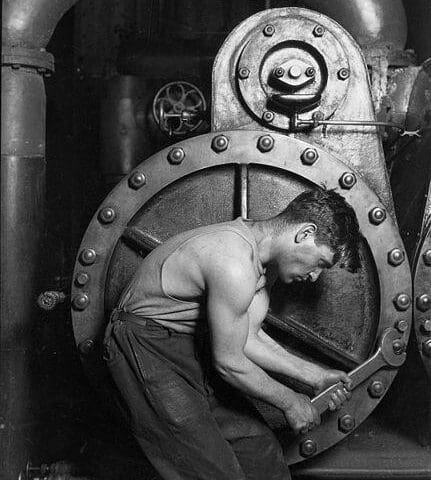
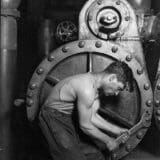
(As we begin Labor Day, 2012, organized labor in America is enduring a Valley Forge period with few signs of improvement on the horizon. Lest we forget, though, why Americans enjoy the employment perks they do – including this very holiday – we repost Stephen D. Foster Jr.’s inventory, via Addicting Info, of reasons to be grateful to unions, and why their existence is essential to our democracy.)
Labor unions are responsible for the many benefits of our jobs that we enjoy today. Even if you only work part time in the worst job possible, you still enjoy at least some of the fruits that labor has fought for. Here are 20 of them.
1. Minimum Wage: Without federally mandated minimum wage, we’d still be working for pennies.
2. Child Labor Laws: Without these laws, children would be hired as cheap labor.


I recently came across a men’s clothing store in Brentwood, a tony neighborhood of Los Angeles, with the provocative name Unionmade. I walked in and meandered around the shop, looking at the pricy shirts, pants, sweaters, jackets, shoes, and other articles of clothing. After examining the apparel, I couldn’t find any items with a union label. What gives?
I called Todd Barket, the store’s founder, to find out.
The 40-year old Barket told me that he’s spent his entire career in the men’s clothing business. After dropping out of Cal Arts, he went to work for Banana Republic, followed by 12 years at The Gap in merchandising, styling, advertising, and marketing, and then two years as Old Navy’s creative director for marketing and advertising. After he was laid off in June 2009, Barket began making plans to open his own retail clothing store, and by that December he’d realized his dream.


Local government issues may not appear to be on the Presidential ballot this November. But the national elections, for President and Congress, will affect our local governments and our daily lives for years afterward.
Like all governments, local administrations are funded by tax revenues. A small number of municipalities and counties across the U.S. have their own income taxes, usually under one percent, but sometimes higher. Every county in Indiana, Kentucky and Maryland, 560 cities and villages in Ohio, and big cities like Philadelphia, Baltimore, New York, Birmingham, and St. Louis receive funds from local income taxes. Most municipal and county governments, however, rely on property and sales taxes.
But a sizable chunk of local government spending comes from federal and state tax revenues that are then given to local governments as grants. Decisions about the federal budget thus have a major direct impact on our home towns.
» Read more about: Budget Cuts: How Slashing Nationally Hurts Locally »
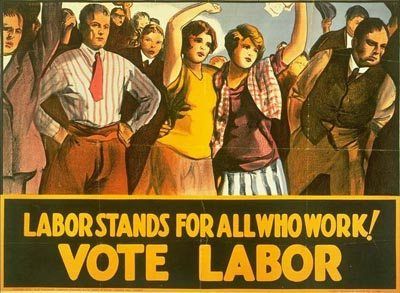
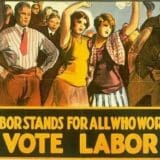
Like any holiday, Labor Day comes with some inevitable scenarios. Number One is that most Americans will take a well-deserved day off, courtesy of the efforts of the labor movement. Next, many of us will barbecue on grills that were paid for by middle class jobs that only exist because of the success of that movement.
But this holiday comes with another inevitability: The Sunday morning newspaper or Web stories proclaiming that people don’t want to join unions anymore. However, despite what the editorial writers and columnists say, the real reason people don’t join unions is that U.S. labor laws are so weak that they are nearly worthless – and the right to join a union is a joke.
When I went to work for my first employer after high school I was part of an organizing drive and a strong majority of the workers – 43 out of 62 – signed cards asking for a union to represent us.
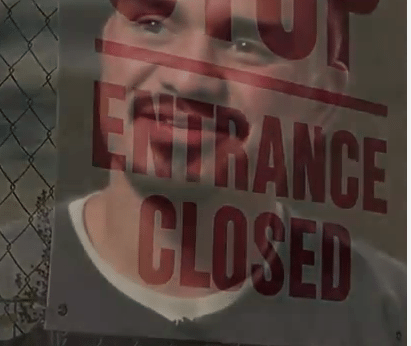

For hundreds of warehouse workers like Daniel Lopez of Riverside, working in unsafe conditions for up to 16 hours a day, for months at a time, is not uncommon. Asking for safe and clean working conditions or a reasonable work schedule could mean losing his job. (Watch Daniel’s video, above, about his experience in the warehouse.)
Last week, Daniel and I, along with other workers, went to Sacramento to urge the California Senate to pass AB 1855. They did, and if signed by Gov. Jerry Brown, AB 1855, sponsored by Assembly member Norma Torres and Senator Juan Vargas, will extend basic protections to tens of thousands of warehouse workers.
Fly-by-night contractors dominate the warehousing industry and provide a buffer between retailers like Walmart and the workers who move their goods. We have seen it many times; staffing agencies that supply workers in warehouses disappear overnight and leave workers without a job and without a paycheck.
» Read more about: Governor Brown Gets Bill to Help Warehouse Workers »
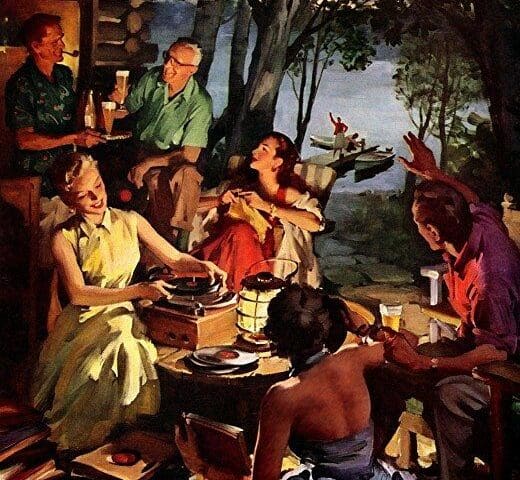

An unlikely source – the Wall Street Journal – has profiled in disturbing detail California’s widening gap not “just between rich and poor but also between rich and middle class.” According to the paper, upper income families in California – defined as “the upper 10 percent” – now earn 12 times as much as lower income families. And the average California family’s income fell by 11 percent between 2007 and 2010.
As a result, only a minority of Californians now can now call themselves “middle class.”
The One Percent’s favorite daily newspaper has even explained how budget cuts threaten to sabotage California’s economic recovery by “saddl[ing] California with an undereducated, less competitive-workforce.”
Budget cuts, which will grow far worse “if voters don’t approve Gov. Jerry Brown’s proposed tax increase in November,” have already:
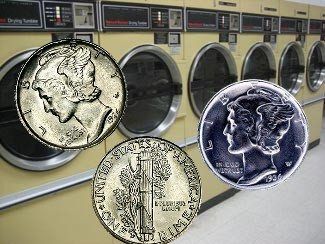

Monday the Des Moines Register reported that Wells Fargo fired an employee who’d been arrested in 1963 for trying to use a cardboard dime on a coin-operated washing machine in a Carlisle, Iowa laundromat. Richard Eggers, a 68-year-old Vietnam War veteran, had worked in the bank’s home mortgage department at a $29,795-a-year job, the Register said. According to the bank, federal regulations barred it from employing workers who’d been convicted of crimes involving dishonesty, even if their criminal records had been expunged. The 2011 rules were applied retroactively to Eggers, who’d been with Well Fargo seven years.
So far the story’s been getting attention on the Internet and radio as one of those What a Wacky World We Live In fillers. It remains to be seen if the level of public outrage reaches a point where someone blinks and Eggers gets his job back. In the past,
» Read more about: Wells Fargo Fires Man for Stiffing Coin Machine – In 1963 »


My grandchildren live on pizza. Oh, they eat other things that young children like, but whenever mom or dad work late or events intervene, the call goes out for pizza man to deliver.
I was thinking about this when I read a piece in The Week a while back about franchisers who will soon need to cover the cost of health insurance for their low-wage workers or pay a fine. The case study focused on a guy who owns a string of chicken and Mexican fast food stops and who employs 425 workers. Some of these people run the front counter. Some do the deep frying. Some sweep up. None, apparently, have any health insurance.
The owner complains that providing these workers health insurance will cost him $546,000 a year – a cost that he says his business plan simply cannot support. Really? I thought.
» Read more about: Pizza, Health Care and the Minimum Wage »


As the GOP assembles in Tampa, the Business Roundtable is joining the corporate chorus complaining about the “burden” and “uncertainty” of government action to remove toxic air pollution, stop climate change, stem the dramatic increase of workplace repetitive stress injuries like carpal tunnel and give consumers information about calories in our Big Macs and human rights abuses built into our iPhones.
The Roundtable is a who’s who of CEOs from America’s largest companies in the energy, banking, pharmaceutical, retail, insurance, communications and food industries. The Roundtable published a wish list of health, safety and environmental “regulations of concern” that their corporate members — many of whom are big political givers — want the Romney/Ryan ticket to stop if elected.
What they call “concerns” are actually important health, safety and environmental protections that Americans need and want. Recent polls (here and here) show that Americans would prefer higher taxes over reducing food and drug safety programs,
» Read more about: Business Roundtable: Fighting the Common Good »
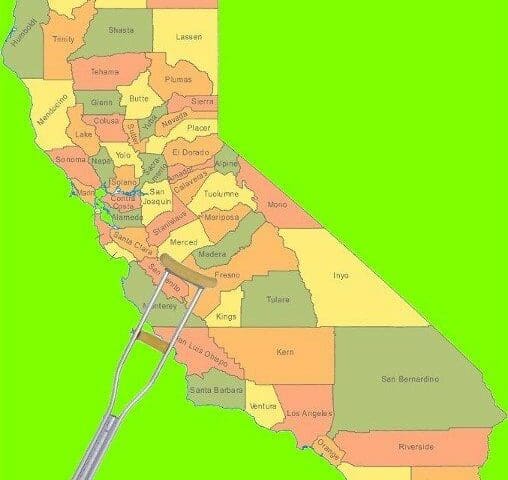

Arnold Schwarzenegger rode into the Governor’s office in 2004 on the campaign promise to “fix” the workers’ compensation system. Every day in 2004, the media hammered home Schwarzenegger’s talking points that California’s highest-in-the-nation workers’ compensation costs were driving employers, and jobs, out of the state.
In the face of a relentless media campaign and the threat of an extreme workers’ comp reform ballot measure, the Legislature passed SB 899 in 2004—a draconian bill that gutted the workers’ compensation system and created more pain and suffering for injured workers.
Since SB 899, permanently disabled workers have seen their benefits slashed to the bone. Medical treatment is delayed and denied by insurance companies, sometimes for over a year. As a result, injured workers are stuck at home battling insurance companies for the medical care they need, with no ability to return to work.
After eight years of watching injured workers struggle with a slashed permanent disability schedule,
» Read more about: Workers' Comp Bill: A Chance to Repair Arnold's Damage »
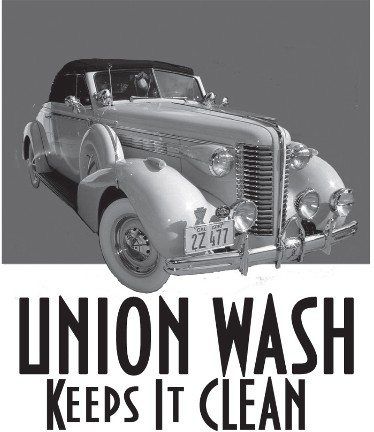
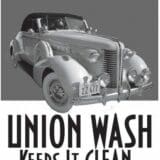
One of organized labor’s unlikeliest bright spots lately has been the United Steelworkers’ unionization of car wash employees. In an economy that has moved with blinding velocity from a Keynesian to Dickensian model, the largely Hispanic-immigrant labor pool available to car wash owners has been among the most grossly exploited in America. Their language and documentation barriers aside, “carwasheros” are known to toil in the hot sun for less than minimum wage – sometimes only for tips – and can be fired at the drop of a rag.
Which is what has made their solidarity and winning of three union contracts through the Los Angeles Clean Carwash Campaign all the more inspiring. This week Los Angeles carwasheros and the Southern California Library invite you to celebrate these victories by patronizing Vermont Car Wash at 6219 S. Vermont Avenue (at Gage).


The seven-month standoff between the bankrupt Hostess Brands, Inc. and the union workers that drive their trucks and bake their Twinkies is about to come to an end, and it isn’t looking good for workers. Hostess, who filed for Chapter 11 Bankruptcy in January, sent a letter out to workers Monday putting forth a final offer to the Teamsters, the largest union at Hostess. The offer releases Hostess from millions of dollars in pension obligations, and if approved, will result in eight percent wage cuts within one year.
Frank Hurt, president of the Bakery, Confectionery, Tobacco Workers and Grain Millers union (BCTGM), the second-largest labor organization at Hostess after the Teamsters, expresses justified anger at the offer. He tells In These Times: “I would never sign this piece of crap. They keep giving us new proposals and each one is even worse than the last.”
Hurt’s union has a particularly weak hand in negotiations.
» Read more about: Hostess Brands' Contract Offer: Let Them Eat Twinkies »